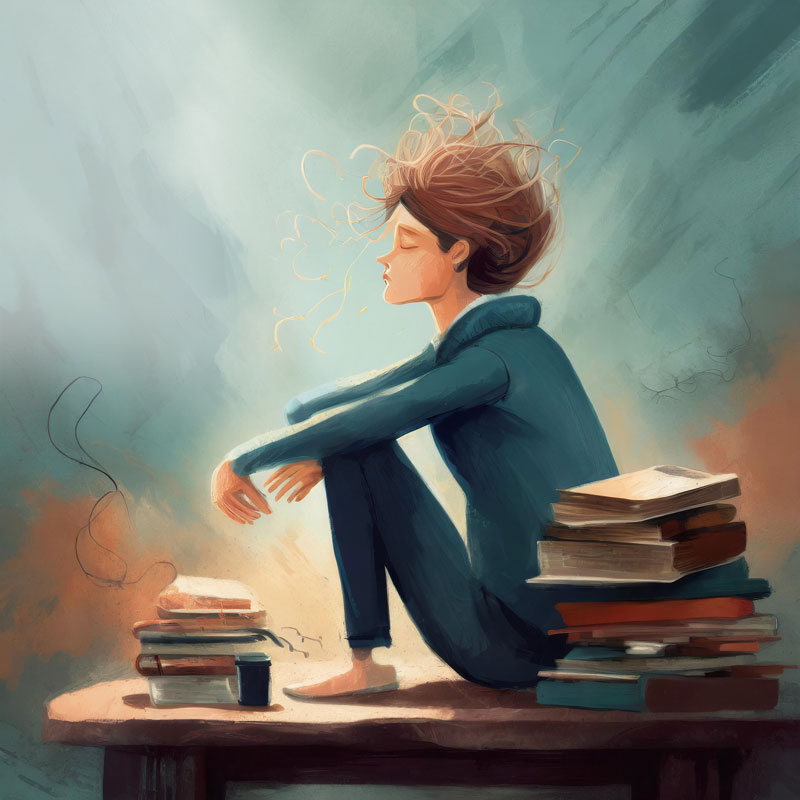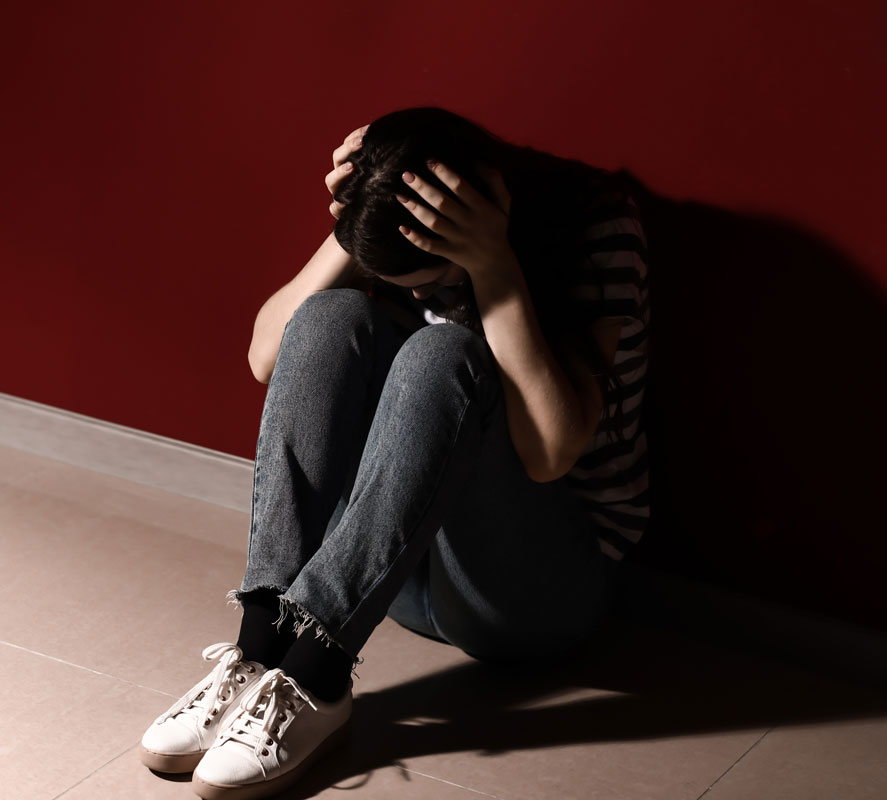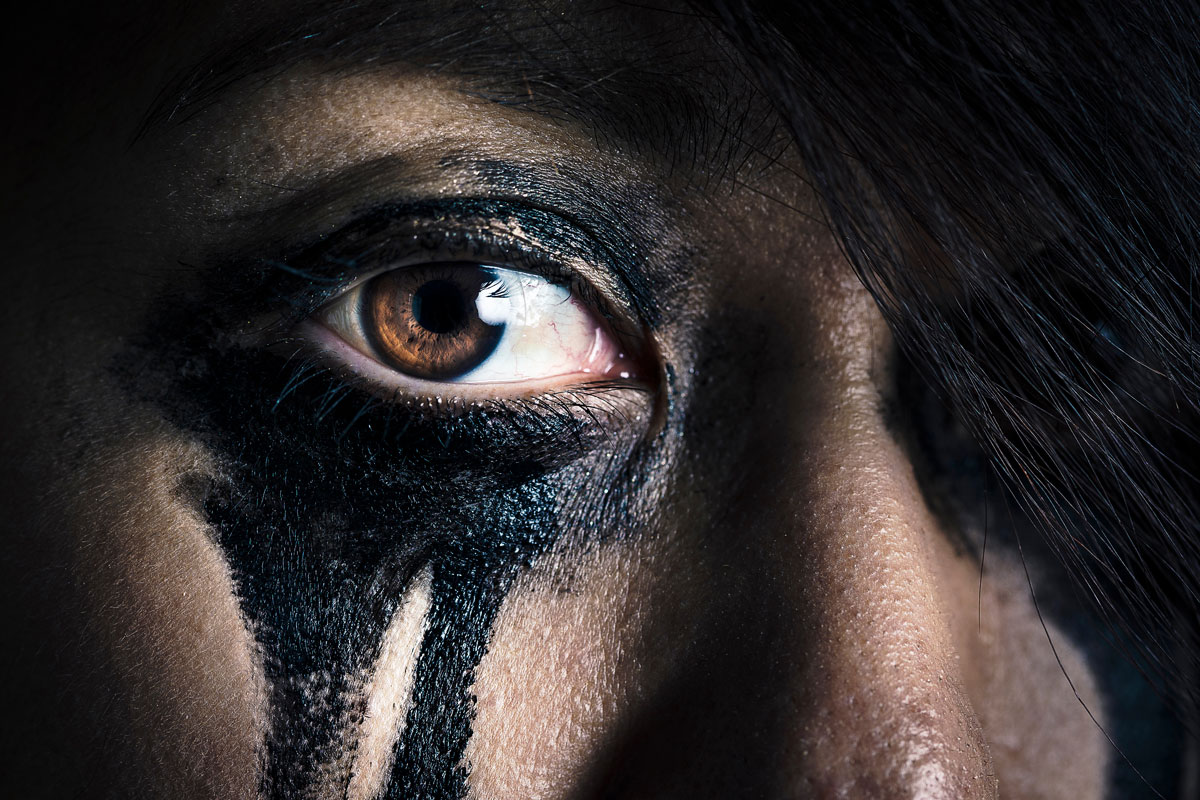Understanding mental health challenges in youngsters
My neighbour was perplexed when her 20-year-old nephew constantly complained to her that someone was following him every time he steps out of the house. He even insisted that she accompany him which she did one night, and reassured him that there was no one shadowing them. Another day he verbally abused the apartment complex security person saying that he was laughing at him when he was not. The young man was suffering from schizophrenia, a serious mental disorder. It took a while for the family to understand his state of mind and provide him psychiatric help.
About 10–12 per cent young adults (below age 30) and 1–2 per cent children (below 14) suffer from mental health illness in India, says Dr Lakshmi Vijayakumar, consultant psychiatrist and founder of SNEHA, a suicide prevention NGO in Chennai. Good mental health would mean that one possesses a balanced mind, confidence and self-esteem. Mental illness significantly affects how a person thinks, perceives and reacts, and can range from psychosis, which is a chemical imbalance in the body, to neurosis, which is poor attitudinal learning during growing or formative years.
Between 8–14, children develop ‘conduct disorders’ such as temper, anxiety, nocturnal enuresis (involuntary urination while sleeping at night), food and school phobias. “Children might refuse to go to school after episodes of shame, rude behaviour by teacher or being bullied by classmates. It could also be due to learning challenges,” she says. Children experience social alienation particularly when they change school or during transition from primary to high school. Developmental disorders such as dyslexia, ADHD or autism can be treated if diagnosed early, she says.
“Many parents do not accept that their child has a mental illness and hesitate to get professional advice. In villages even today people take their ward to a temple priest or a tantric who will most likely wave neem leaves over them or chant mantras offering a cure. Mental illness is not yet viewed as a medical problem in our country,” says child psychologist Dr Bhanumati Sharma.
According to the numbers quoted in the Indian Journal of Psychiatry in 2019, even before the Covid pandemic, at least 50 million children in India were affected with mental health issues; 80–90 per cent of them never sought support. The scenario is slightly improved after Covid, says Dr Lakshmi. But the stigma is still there. “People must be educated that it is okay to be not okay. Mental wellness is intrinsically linked to physical health and wellness. The role of parents, families and communities in listening to children and supporting them to talk about mental health issues helps to address them early,” she adds.
People must be educated that it is okay to be not okay. Mental wellness is intrinsically linked to physical health and wellness.
— Dr Lakshmi Vijayakumar
Highlighting the fact that there was a spike in the number of walk-ins to her clinic soon after the pandemic, she says, “we all went through a challenging time living through risks and restrictions, an uncertain life with the risk of death, losing a loved one or losing a job. For children, being away from family, friends, classrooms and play, caused isolation and anxiety. They have not only been living an emotional tragedy, many were also at a higher risk of neglect and abuse.”
Mental health issues in youngsters
Dr Bhanumati observes that about half of all mental illnesses are known to begin by age 14, and three-quarters by mid-20s. Depression, mood swings, schizophrenia and bipolar disorders manifest during the twenties. Academic and peer pressure, family issues, failures, relationship issues, rejection — “all these factors can gradually lead up to mental disorders, particularly when such people do not find a sympathetic ear to share their anxieties with. Alcohol addiction or substance abuse begins to creep into their life, making it all the more miserable.”
Dr Lakshmi says that substance abuse is common in children even at 15, particularly in urban metros. “I have addressed school-going children addicted to weed, hashish and heroin. They are not even aware of its side effects. All that they know and care about is that it gives them an ‘instant high’. These mind-altering drugs will later lead to psychotic disorders.” She says that tobacco products such as vape and cool lip are rampantly sold in tea shops close to school campuses. “School children think it is cool to use these products. The first reaction from a parent when a teacher complains about it is to deny that their child is capable of such stuff, and that he/she must be covering up for someone else.”
The cognitive brain of a human being matures by 18, while the emotional brain matures only by 25. “Many things can be stressful in the life of a 20-something — from finance to career choices to relationships to family stress — as he/she starts to show up in the world as an adult. Prompt guidance and reassurance from loved ones will give them the confidence to face life’s challenges.”
Mental health in LGBTQ youth
LGBT persons are at a greater risk of poor mental health, says Dr Lakshmi. They report elevated rates of emotional distress, mood and anxiety disorders, self-harm and suicidal ideation when compared to heterosexual youth. “Stigma and discrimination, and lack of support in the many institutions that guide the lives of the LGBT youth (their schools, families, workplace) leave them more vulnerable to experiences that may compromise their mental health.” Parental acceptance and peer support can help them with positive mental health and self-acceptance when they come out about their sexual identity and orientation.
Care for the mentally ill
The Banyan, an NGO in Chennai, co-founded by fresh graduates Vandana Gopikumar and Vaishnavi Jayakumar in 1993, provides extensive services to mentally-ill and abandoned women. Over the years it has grown to include several facilities such as the Emergency Care and Recovery Centre offering hospital-based settings, the Centre for Mental Health and Inclusive Development promoting the Home Again model and the Centre for Social Needs and Livelihood. It has outreach clinics across Chennai and other cities, and in 10 other Indian states including Kerala, Maharashtra, Karnataka and Assam. It is also working with various state governments. The Banyan Academy of Leadership in Mental Health (BALM), in association with the Tata Institute of Social Sciences and Sundaram Fasteners, offer capacity building, masters, PhD and diploma programmes in mental health.
“Our volunteers regularly look out for people with mental health issues, or we get referrals from the police and the public,” says Deepika Eashwaran, senior research associate at BALM. Home Again model offers homes shared by three to five women requiring long-term treatment under the care of a community worker. “This model mimics a familial environment and helps in faster healing,” she says. The women engage in a wide range of work, and embrace leisure, recreation and socialisation with the community. Vocational training in art and craft, hospitality and beauty services, and healthcare training as peer advocates and personal assistants, and work placements are offered at The Banyan.
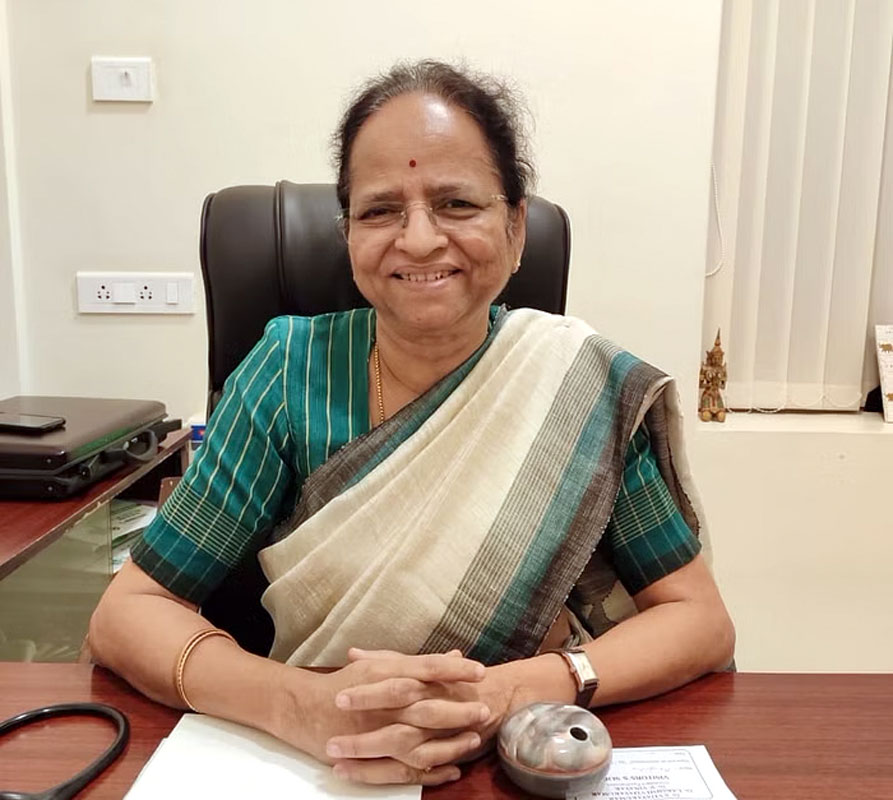
“You will find a talented artist, despite grappling with paranoid schizophrenia, who paints vibrant images of nature. Elderly women gather to cut vegetables for distribution to supermarkets; block printing provides solace and income for one woman, while others form part of an SHG that runs a roadside cart offering affordable dishes. With active support of volunteers, they all strive to reconcile their mental struggles with the demands of daily life,” adds Deepika.
Once their clients get better, the NGO works with the police and local organisations to reconnect them with their families. Volunteers visit their homes and educate the family members on illness management. The aftercare programme ensures continuity of care after the individual returns home, with the help of civil society organisations, government agencies and community health workers.
Parental mental illness
At a lecture series organised in Chennai by The Banyan, an exhibiton of poignant photographs taken by two youngsters, Mohammed Ibrahim and Thenarasan, was inaugurated by noted cinematographer P C Sreeram. Both their mothers are recovering, under the care of Banyan, from serious mental health issues. Sadly, their fathers had deserted their families soon after the two were born.
Ibrahim hails from Ajmer and was brought up by his nani. “Salma, my mother was mentally affected after my father deserted us as soon as I was born in 2002. She slowly withdrew into a shell; my nani and mama took her to the dargah where they said that she was possessed by some spirit. She would often run out of the house half-clothed; she never took care of me,” he says.
One day Salma boarded a train that incidentally took her to Chennai, where the police took her to Banyan. She was treated and brought back to Ajmer after two years. But once home, she stopped her medication and suffered relapse. As the family was poor, they had no means to take her back to Chennai and until such time, she was tied up in chains at her home.
Meanwhile, Ibrahim had a wayward childhood. “I would go to school only because I got food there, roam around the streets of Ajmer where tourists would offer me rotis and sweets, and steal chappals from the dargah, just for the fun of it. I had no connection with my mom and people would call me pagli ka ladka (son of a mad woman),” he recalls.
A few years later, with support from philanthropists, his grandmother took Salma back to the Banyan, leaving Ibrahim in a madrasa. “That was the most difficult period and I was lonely as the atmosphere at the madrasa was controlled. I would cry my heart out and pray for better days.” He found solace in reading the Quran. Soon his grandmother took him to Chennai and “then there was no looking back. The Banyan took care of my education, improved my social skills and gave shape to my future. I owe my entire life to them,” he says. He was admitted into an international school in the city where he struggled with his lessons initially after which he became a topper.
I have addressed school-going children addicted to weed, hashish and heroin. They are not even aware of its side effects. All that they know and care about is that it gives them an ‘instant high’.
— Dr Lakshmi Vijayakumar
Ibrahim is presently doing media studies at the Srishti Manipal College in Bengaluru, and is interning with cinematographer Sreeram as his assistant. Salma is much better now and is happy to watch her son grow. “For me, my work isn’t just about capturing images or scenes; it’s about reflecting on my own experiences, and sharing stories that resonate deeply with me,” he says.
Thenarasan’s mother Thiruselvi is also healing well and he is engaged as a peer advocate with The Banyan. He is pursuing a career in photojournalism at the BALM after completing Bachelor’s in Electronics that was sponsored by The Banyan.
Teaching soft skills to children builds their competency, says Dr Ramesh Raghavan, professor, NYU Silver School of Social Work, New York, who spoke at the event that focused on supporting child and adolescent mental health in the context of parental mental illness. He points out that the issue of reaching out to the population can be easily addressed as India has a large network of anganwadis and balwadis.
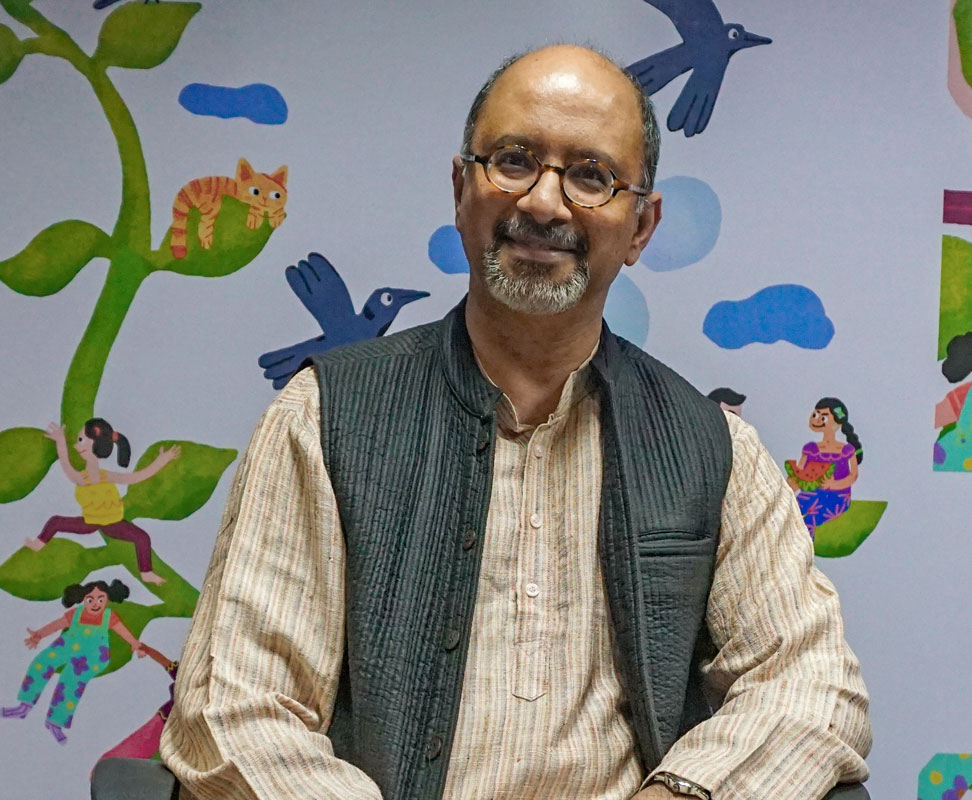
professor, NYU Silver School of Social Work, New York
Every year, around two lakh children from across the country flock to Kota, Rajasthan, to join coaching classes to prepare for JEE and NEET. Several die by suicide, due to depression and stress. “The children are admitted to these institutes at age 15 or 16. They miss out on the benefits of school, extracurricular activities and friendships, and are under intense pressure to perform. Some parents have pledged their property and want their child to succeed in the exams,” says Dr Chetna Duggal, associate professor, Tata Institute of Social Research. There needs to be a comprehensive overhaul in the approach of both coaching institutes and parents to address the alarming rise in student suicides, she adds.
Dr Lakshmi says that the important step involves making integrated efforts in our homes, educational institutes and at the community level to discuss and accept mental health challenges, just like physical health problems. This will help in dismantling the taboos that prevent most children and adolescents from seeking help. Younger people must be told that acknowledging and seeking help for mental health challenges is a sign of intellect and maturity, not something to be ashamed about. Higher secondary schools should initiate counselling programmes to encourage children to develop a positive mindset, she suggests.
At the RI Convention in Singapore (May 25–29), on the mainstage and in breakout sessions, several speakers, including former Rotarator Freddie Almazan will address mental health topics, including those concerning young people. Almazan was shot in the head at 13, and left paralysed on one side of his face and body. He overcame despair, depression and thoughts of suicide while growing up in California, to live a “ridiculously good life.”
Symptoms to watch out for
Dr Lakshmi Vijayakumar, consultant psychiatrist, points out the warning signs of mental health disorders to look out for in children and young adults:
- Changes in sleep pattern
- Changes in mood including anger, sadness or irritability
- Headaches
- Unusual or out-of-character behaviour
- Memory loss
- Withdrawal from routine and social interactions
- Increased dependence on drugs or alcohol
- Sudden weight gain or loss
- Hallucinations or delusions
To ensure better emotional and mental wellbeing in youngsters:
- Cut down behavioural addiction such as addiction to gadgets, social media and gaming. Internet and social media addiction further hurt the mental wellbeing of young people.
- Enforce strict bedtime and switch off gadgets one hour before bedtime. The family too should follow the rule.
- Encourage healthy conversation within the family and enable a healthy, happy environment. Avoid helicopter parenting or being extra strict. Set boundaries and encourage children to act within that.
- Teach them emotional control and problem-solving. Make children understand that it is okay to fail and let them learn from their failures.
- Ensure that the individual has a positive support system. Encourage open conversations and remove taboos around mental health.




